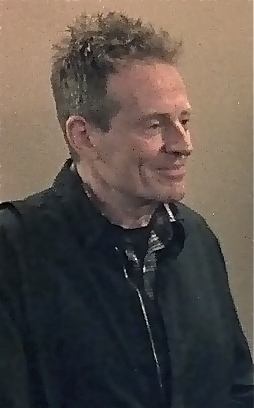Jörg-Peter Klotz interviewed John Paul Jones for Mannheimer Morgen (http://www.morgenweb.de/) while Jones and Helge Sten were in Mannheim for a performance in November 2011.  Here, with the help of Google Chrome’s translator, is a rough English translation of that interview:
As a bassist and keyboardist John Paul Jones was a member of one of the greatest rock bands ever: Led Zeppelin. On Monday, 14 November, the 65-year-old Briton will be at the Old Fire Station Mannheim for the second appearance of the duo Minibus Pimps exploring entirely new sound spaces. In our interview, he gives an insight into the unusual sound.
J̦rg-Peter Klotz: Mr. Jones, previously there has been only one appearance of Minibus Pimps, at the Punkt festival in Norway. Can you explain what might happen with you and Helge Sten on stage Рor is it completely open?
John Paul Jones: (laughs) It’s been very open. There is a kind of map, supplied by the computer programs and the Kyma language. We play instruments, Helge and I, to control the sounds of the processors. And iPads. Within this map, we improvise. For this reason, no one knows exactly what will happen. There will be textures, sounds, noise emerging. But also notes … (laughs), but not very many. I can promise you that it sounds very intense – you will not fall asleep!

What attracts you to such experimental music?
I’ve been improvising for a long time, and electronic music has always interested me. In Led Zeppelin we used some very early synthesizers. It was just always a problem of how to control the sound. Then came the computer, which was the next step. After that, I’ve been involved, for example, in John Cage’s Musicircus.
On the other hand, you currently play with a lot of blues rockers like Seasick Steve, comparatively simple blues-rock – you need both sides of the musical coin?
Music has more than two pages! It is always the same phenomenon; there are just different ways to play it. Monday I play with Helge, then with Seasick Steve, back in March it was John Cage – for me it is always the same game and everything exists side by side. Also, I’m currently writing on a classic opera based on Strindberg’s “Ghost Sonata”.
What do you find important for the general development of music: Experiments in a Sound Lab à la Minibus Pimps or redefining traditional styles that you maintain with different partners?
Again, there is room for both. Music must stay alive. Therefore one must not look only to the past. Without experiments, music has no future. At the same time, the old styles are important and valuable: There is still much to talk about the blues and in rock music. I will always love to play bass, guitar, mandolin or fiddle in a band. But I also do this in order to renew music – it’s a natural development.
One concept that the Enjoy Jazz Festival is importing from Punkt is that of the live remix concerts. Will you listen to the “After-Show” by Sidsel Endresen, Jan Bang and Erik Honoré?
Sure. This is a great idea. I find it very interesting to see how other people play the material.
Led Zeppelin’s 40 year old ballad “Stairway To Heaven” is still winning the most votes on the most popular rock song. Do you find this backward?
Oh, it’s always good when people like your music. Why should I interfere with that?
In 2010 when Them Crooked Vultures played at Rock am Ring, there were sparks flying between you and drummer Dave Grohl. Wouldn’t he be ideal for a Led Zeppelin reunion?
There will be no Led Zeppelin reunion! But Dave and I were a very good rhythm section (laughs). And he had a blast because he enjoys being a drummer and not always the front man of the Foo Fighters.
Translated from the original German as it appeared in Mannheimer Morgen 12th November 2011